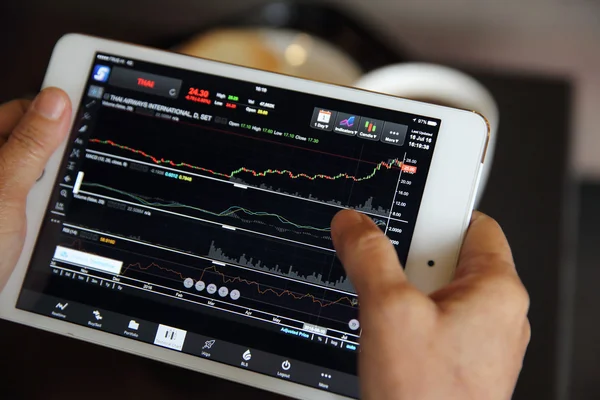Forex trading, also known as foreign exchange trading or currency trading, is a popular form of investment that involves the buying and selling of currencies. It is a market that operates 24 hours a day, five days a week, and is accessible to anyone with an internet connection. For newcomers, the world of Forex can seem daunting, but with the right knowledge and tools, it can be a profitable venture. In this introductory guide, we will explore the basics of Forex, how to get started, choosing the right broker, developing a trading plan, managing risks, and tips for successful trading.
Understanding Forex Basics

Forex trading involves the exchange of one currency for another, with the aim of making a profit from the fluctuations in exchange rates. The Forex market is the largest financial market in the world, with a daily turnover of over $5 trillion. Currencies are traded in pairs, with the most popular pairs being EUR/USD, USD/JPY, and GBP/USD. The first currency in the pair is known as the base currency, while the second is the quote currency. The exchange rate represents how much of the quote currency is needed to buy one unit of the base currency.
When trading Forex, it is important to understand the concepts of leverage and margin. Leverage allows traders to control a larger position with a smaller amount of capital, while margin is the amount of money required to open a leveraged position. However, it is important to note that leverage can amplify both profits and losses, so it is crucial to use it wisely. Additionally, traders should be familiar with the different types of orders, such as market orders, limit orders, and stop-loss orders, which can help manage risk and maximize profits.
Another important aspect of Forex trading is the use of technical and fundamental analysis. Technical analysis involves the study of price charts and patterns to predict future price movements, while fundamental analysis focuses on economic indicators and news events that can impact currency values. Both forms of analysis are essential for making informed trading decisions and developing a successful trading strategy.
Getting Started with Forex
To start trading Forex, you will need to open an account with a Forex broker. This involves providing personal and financial information, as well as completing a verification process. Once your account is set up, you can deposit funds and begin trading. It is recommended to start with a demo account, which allows you to practice trading with virtual money before risking real capital. This is a great way to familiarize yourself with the trading platform and test different strategies.

When starting out, it is important to educate yourself on the Forex market and trading principles. There are numerous resources available, including books, online courses, and webinars, that can provide valuable knowledge and insights. It is also helpful to follow financial news and economic calendars, which can give you an understanding of the factors that influence currency values.
One of the most important steps in getting started with Forex is developing a trading plan. This should include your trading goals, risk tolerance, and strategies. A well-defined plan will help you stay disciplined and focused, and can prevent you from making emotional decisions that can lead to losses. It is also important to continuously review and adjust your plan as you gain experience and learn from your trades.
Choosing the Right Forex Broker
Choosing the right Forex broker is crucial for your trading success. A good broker should offer a reliable trading platform, competitive spreads, and a range of trading tools and resources. It is important to do your research and compare different brokers before making a decision. Look for reviews and feedback from other traders, and check if the broker is regulated by a reputable financial authority.

When selecting a broker, it is also important to consider the types of accounts offered, as well as the minimum deposit and leverage options. Some brokers offer different account types for different levels of traders, from beginners to professionals. It is also important to consider the customer support offered by the broker, as you may need assistance with technical issues or account-related queries.
Another important factor to consider is the broker’s fees and commissions. Some brokers charge a commission on trades, while others make money through the spread, which is the difference between the buy and sell price of a currency pair. It is important to understand the fee structure and calculate the costs of trading to ensure that it aligns with your trading plan and goals.
Developing a Forex Trading Plan
A trading plan is a blueprint for your Forex trading activities. It should outline your trading goals, risk management strategies, and the criteria for entering and exiting trades. A well-thought-out trading plan can help you stay disciplined and focused, and can prevent you from making impulsive decisions that can lead to losses.
When developing a trading plan, it is important to consider your trading style and the time frame you will be trading in. Some traders prefer to trade on a short-term basis, while others prefer to hold positions for longer periods. Your trading plan should also include a risk management strategy, which outlines how much you are willing to risk on each trade and how you will manage your overall exposure to the market.
It is also important to continuously review and adjust your trading plan as you gain experience and learn from your trades. The Forex market is constantly changing, and your plan should be flexible enough to adapt to new market conditions and opportunities.
Managing Risks in Forex Trading
Risk management is a critical aspect of Forex trading. It involves identifying potential risks and taking steps to minimize them. One of the most important risk management tools is the stop-loss order, which automatically closes a position if the market moves against you by a certain amount. This can help prevent large losses and protect your trading capital.

Another important risk management strategy is position sizing, which involves determining the size of your trades based on your risk tolerance and the volatility of the market. It is important to avoid over-leveraging your account, as this can lead to significant losses. It is also important to diversify your trades, by investing in different currency pairs and using different trading strategies.
It is also important to have a plan for dealing with losing trades. No trader wins all the time, and it is important to have a strategy for managing losses and moving on to the next trade. This can include analyzing what went wrong, learning from your mistakes, and adjusting your trading plan accordingly.
Tips for Successful Forex Trading
Successful Forex trading requires patience, discipline, and continuous learning. It is important to set realistic goals and expectations, and to avoid chasing after quick profits. It is also important to stay informed about market news and economic events that can impact currency values.
One of the keys to successful trading is to have a well-defined trading strategy that fits your trading style and risk tolerance. It is also important to continuously review and refine your strategy as you gain experience and learn from your trades.
Finally, it is important to maintain a positive mindset and stay focused on your long-term goals. Forex trading can be a challenging and emotional endeavor, but with the right knowledge, tools, and mindset, it can also be a rewarding and profitable one.
In conclusion, Forex trading can be a lucrative investment opportunity for newcomers, but it requires a solid understanding of the market, a well-defined trading plan, and effective risk management strategies. It is important to choose the right Forex broker, educate yourself on trading principles, and continuously review and refine your trading approach. With patience, discipline, and a commitment to learning, anyone can become a successful Forex trader.

